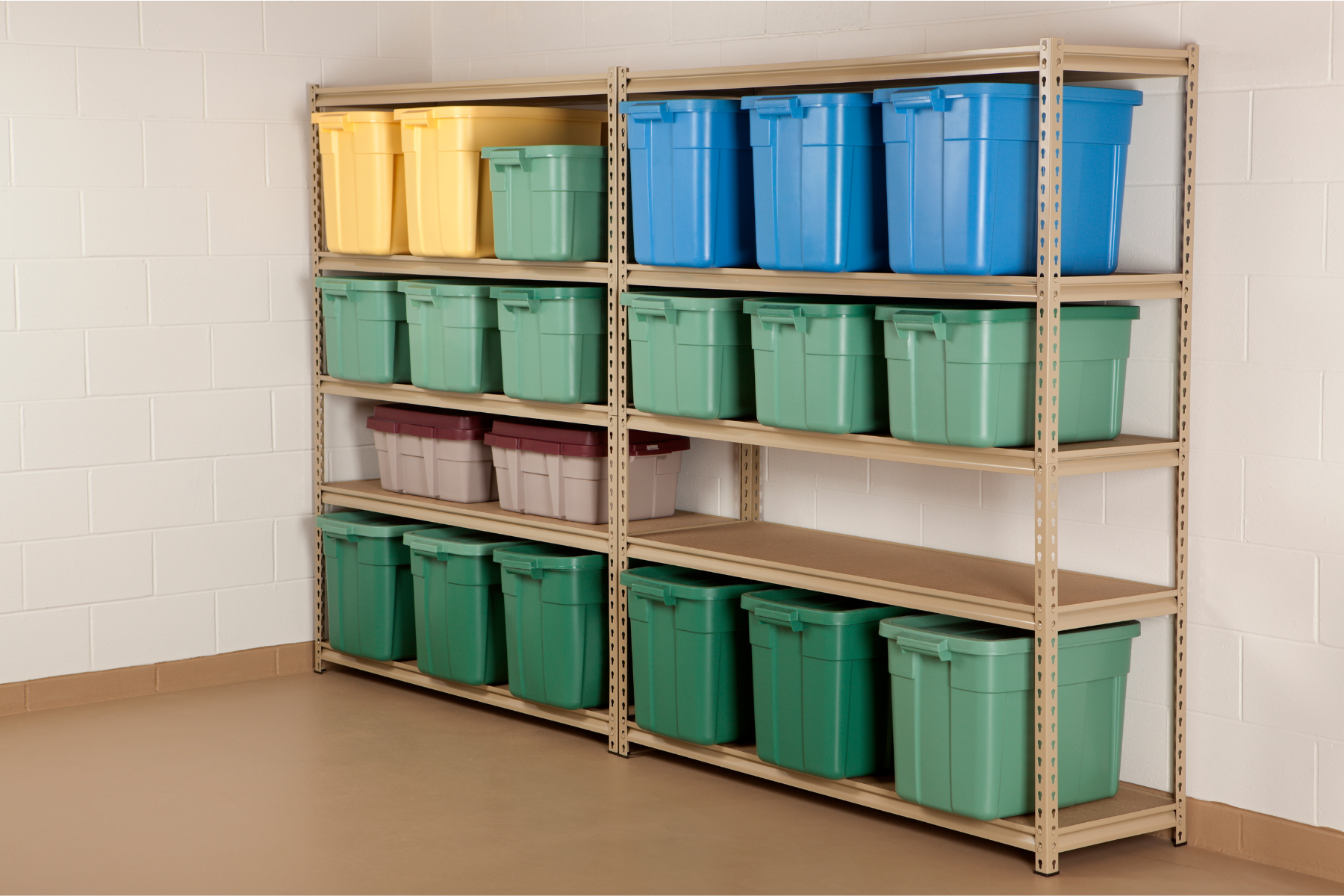We all have busy lives, and it can be hard to keep up with everything around the house. One of the many things I discuss with my clients is the importance of putting themselves in a position to be successful at preventing mold. I often joke about my two adorable dogs who are always by my side trying to score snacks while I’m in the kitchen. They intentionally position themselves there and are almost always successful.
Mold growth in the home is often avoidable by keeping things organized and by following a few simple tips when storing personal items. Mold needs moisture to thrive. Moisture and dampness are always around us in one form or another, and are sometimes unavoidable depending on the type of house you have. How we manage moisture makes all the difference.
In addition to running dehumidifiers, here are my top five recommendations for storing items in the basement or other unconditioned areas such as garages and crawlspaces.
1. Don’t store cardboard boxes or other paper items directly on concrete slab floors.
Why? Because Stachybotrys and Chaetomium, two of the most toxic varieties of mold, grow on cellulose-rich materials like cardboard and paper. Ground moisture seeping up through particularly old slabs—a process known as vapor drive—can condense on cold concrete, causing mold to grow on the bottom of boxes. Cardboard is porous and absorbs vapor escaping from the slab. Remember, there’s nothing wrong with using cardboard; what matters is how you manage moisture and how and where the cardboard is stored.

2. Use plastic pallets to keep items off the ground.
If using wood pallets, apply pieces of weather stripping or Styrofoam to create a capillary (moisture) break between the pallet and the slab. In the event of water damage from flooding or mechanical failure—such as a water heater leak—cleanup is much easier if your items are off the ground. That way, cardboard boxes won’t get wet and potentially moldy.

3. Use plastic storage bins and put calcium chloride tablets or pouches inside to manage moisture.
Change the packets as needed. Managing ambient humidity also helps immensely.

4. Use open-backed metal or plastic storage shelves.
This allows air to circulate on all sides, helping any moisture caused by seepage through the foundation, walls, or vapor from the slab to dissipate and evaporate. Closed-backed shelves or furniture placed directly against foundation walls can trap moisture and lead to mold growth on the back of items, so make sure to leave space for air circulation.

5. Don’t overpack closets.
Why? Walls inside finished closets that are built along exterior-facing walls have colder surface temperatures, making them more prone to condensation. By keeping items several inches off the walls and using louvered or half-louvered doors to promote air circulation, you can help prevent condensation from occurring.

About the Author:
John Skelly, Council-Certified Indoor Environmental Consultant (CIEC)
With over 20 years of experience in the indoor environmental industry, John Skelly is a seasoned expert in residential and small commercial indoor air quality assessments and mold assessments. As a Council-Certified Indoor Environmental Consultant (CIEC) through the American Council for Accredited Certification (ACAC), John brings a deep understanding of the complexities surrounding indoor air quality and environmental health.
Throughout his career, he has developed extensive expertise in mold assessment, water damage restoration, mold remediation, and HVAC system inspection. He previously owned and operated an air duct cleaning business, & for the past 15 years, he has focused primarily on mold and indoor air quality assessments in residential & small commercial environments, helping thousands of clients identify and resolve microbial & indoor air quality issues to create healthier living spaces. Known for his thorough evaluations, practical solutions, and commitment to industry standards, John Skelly continues to be a trusted consultant in the field of indoor environmental quality, particularly for those dealing with more sensitive issues.
